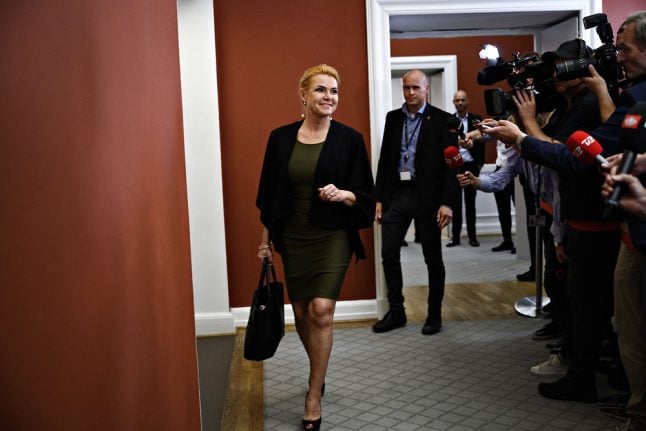Støjberg’s announcement follows hot on the heels of Jakob Ellemann-Jensen’s confirmation that he, as widely expected, will seek to succeed Lars Løkke Rasmussen as leader of the Liberals, the largest party on Denmark’s right.
“I have considered it for the last couple of days and I think that Jakob (Ellemann-Jensen) and I would make a very good duo, because we are two different people but have always had a good working relationship,” Støjberg told Ritzau.
Rasmussen and outgoing deputy leader Kristian Jensen both announced their resignations on Saturday after a spell of infighting and recriminations within the party following its defeat in the June 5th general election.
That was closely connected to an apparent difference between the two over Rasmussen’s willingness to govern in partnership with the Social Democrats, a traditional rival of the Liberals.
Støjberg said she would “back (Ellemann-Jensen) 110 percent” should they be elected to the respective roles at the Liberal extraordinary national congress on September 21st.
The former minister for immigration cultivated an image as a hardliner on the issue during her time in the government through a number of controversial or outspoken actions.
Those included publishing a picture of herself with a cake to celebrate the passing of a 50th law curbing immigration; calling for the public to report pizzerias where staff did not speak Danish; and telling a false story about a daycare banning pork from children's lunches.
Conversely, she was the architect of an apprenticeship system which was praised by companies for helping them bring refugees onto Denmark’s labour market.
Her biggest controversy arguably revolves around a directive issued in 2016 to forcibly separate, without individual case assessment, married couples given asylum in Denmark, provided one of the couple was under 18 years old. The directive was later found to be illegal and Støjberg faced a series of testing parliamentary hearings over it.
That issue could threaten to resurface and harm her deputy leadership, given a new, left-wing parliamentary majority is potentially capable of commissioning an inquiry.
READ ALSO: Ellemann-Jensen is likely new leader for Denmark's Liberals after confirming candidacy



 Please whitelist us to continue reading.
Please whitelist us to continue reading.
Member comments